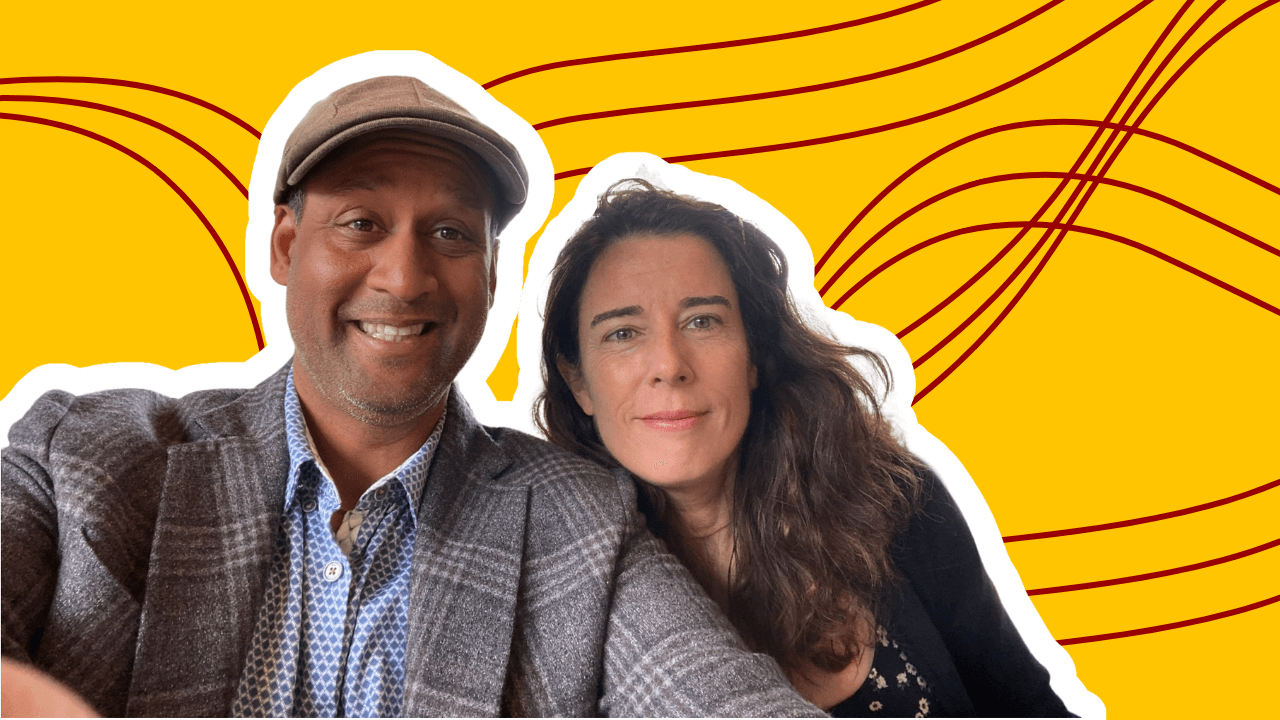
Santanu and Kelly Das, B.S. ’95, B.S. ’96 met while they were CEE students at USC Viterbi. They are now returning to USC to spark an innovation movement among students.
Santanu Das, B.S. ’95, packed his bags and moved to Los Angeles to study at the USC Viterbi School of Engineering as a trustee scholar with a vague idea of what he would do with a degree in civil engineering.
“I was young and idealistic. My father was a structural engineer and I always found his work interesting but thought there was a faster way to do things using automation through computers. I wanted to advance infrastructure and give back to society,” Das recalled.
During his freshman year, the L.A. riots broke out. Then, in 1994, the Northridge Earthquake devastated the city killing more than 60, injuring more than 9,000, and causing over $20 billion in damage. These formative experiences in the City of Angels inspired Das to work on impactful projects like coming up with new computer simulations to improve the safety of structures.
The young idealist had moved from his native New Jersey – a state whose entire population was the size of Los Angeles. His fondest memories are the adventures he had with the USC Chapter of the American Society of Civil Engineers (ASCE), building a concrete canoe for a competition in Hawaii.
It was also at ASCE that he met fellow CEE classmate and future wife, Kelly Das ’96. The two went on to successful careers that defy expectations of what civil and environmental engineers do.
Now, the couple will kickstart a student innovation competition at the Sonny Astani Department of Civil and Environmental Engineering that launches in the Fall 2022 semester. The competition will be be focused on smart cities, smart infrastructure, equity and sustainability in Los Angeles. Kelly and Santanu envision students partnering with industry to come up with bold, innovative ideas of how we can make Los Angeles a more sustainable, smarter and equitable city to live in.
“USC is a fertile ground for great ideas,” Santanu said. “And we can now build cooler things than a concrete canoe. We must connect the dots between industry and academia and society in a way that sparks innovation and entrepreneurship and takes engineering from the classroom to the street.”
After graduating at the top of his class at USC Viterbi, Santanu was awarded a full graduate scholarship to the Massachusetts Institute of Technology where he earned his master’s in civil engineering.
“We must connect the dots between industry and academia and society in a way that sparks innovation and entrepreneurship and takes engineering from the classroom to the street.”
Santanu Das
He cut his teeth in the world of finance before joining Research Engineers International in 1998 as a senior programmer, then eventually its president, transforming the world-renowned STAAD structural line of products into an open architecture platform where other applications could seamlessly integrate. He also opened new markets in Southeast Asia before the company was acquired by Bentley Systems – a world leader in developing the computer software used to build our roadways, bridges, and infrastructure. He is currently the chief acceleration officer at Bentley Systems, where he manages the corporate strategy for acquisitions, investments, and new startup businesses.
He also serves on the Sonny Astani Department’s advisory board, and on the board of MATHCOUNTS, an organization dedicated to sparking a love for math in junior high students.
Kelly went on to earn her M.B.A from UCLA, then worked in tech consulting and management roles at IBM and Nissan. She is now the president of a real estate company and assists with fundraising and volunteer efforts at multiple charitable organizations. The Das couple is part of a generation of alumni that sought to break down silos. The two remember a time at USC when there wasn’t much collaboration between engineering and other disciplines.
“Engineers have had this historical stigma of, you know, pocket protectors and calculators and doing hard math problems,” he said. “Now we need to take those problem-solving skills and apply them to huge societal challenges.”
That, according to Santanu, requires a spirit of spirit of innovation and understanding societal, economic, and environmental realties.
“Today we see disciplines like sociology, life sciences and engineering combined,” added Kelly Das. “So we need people with technical backgrounds who also understand the basics of marketing and finance. And that is ultimately going to make for smarter engineers and smarter engineers build smarter cities.”
More information on the student innovation competition will be announced in late June 2022.
Published on April 19th, 2022
Last updated on April 21st, 2022







